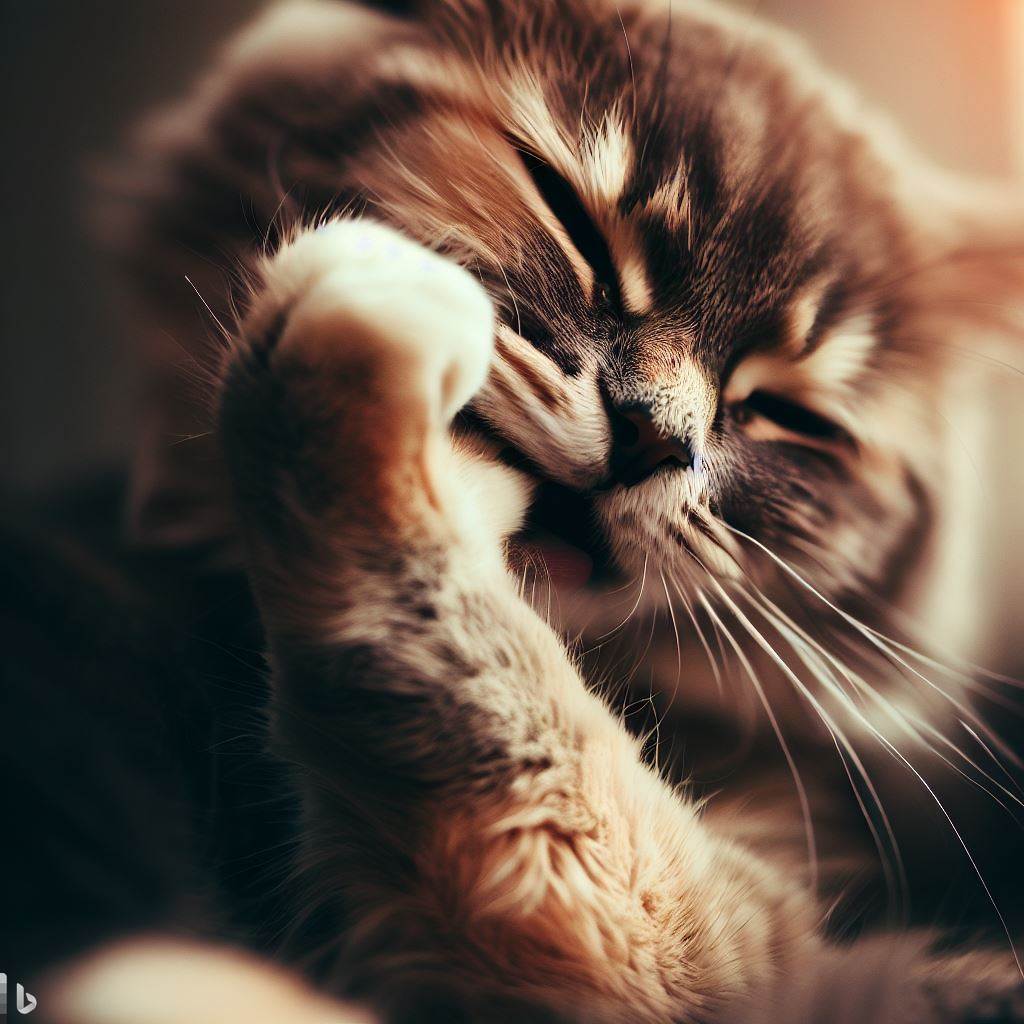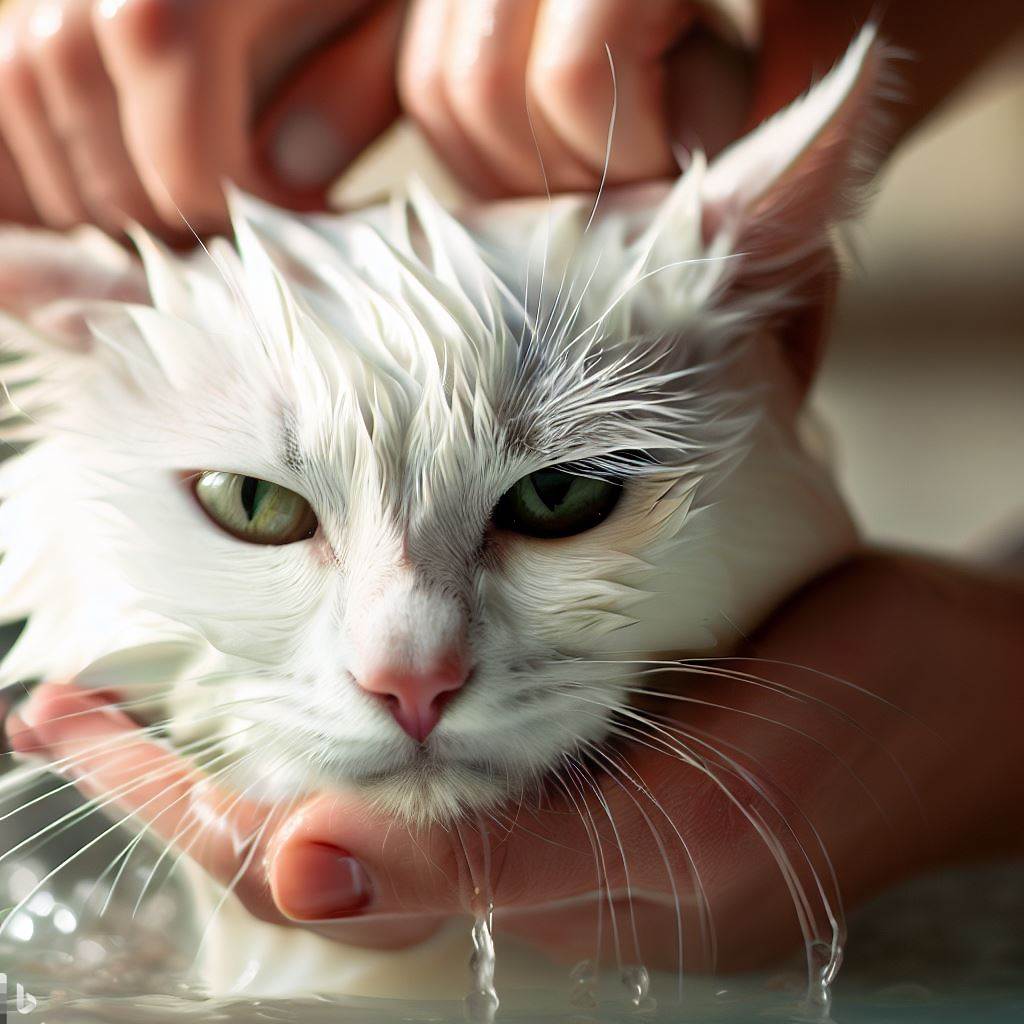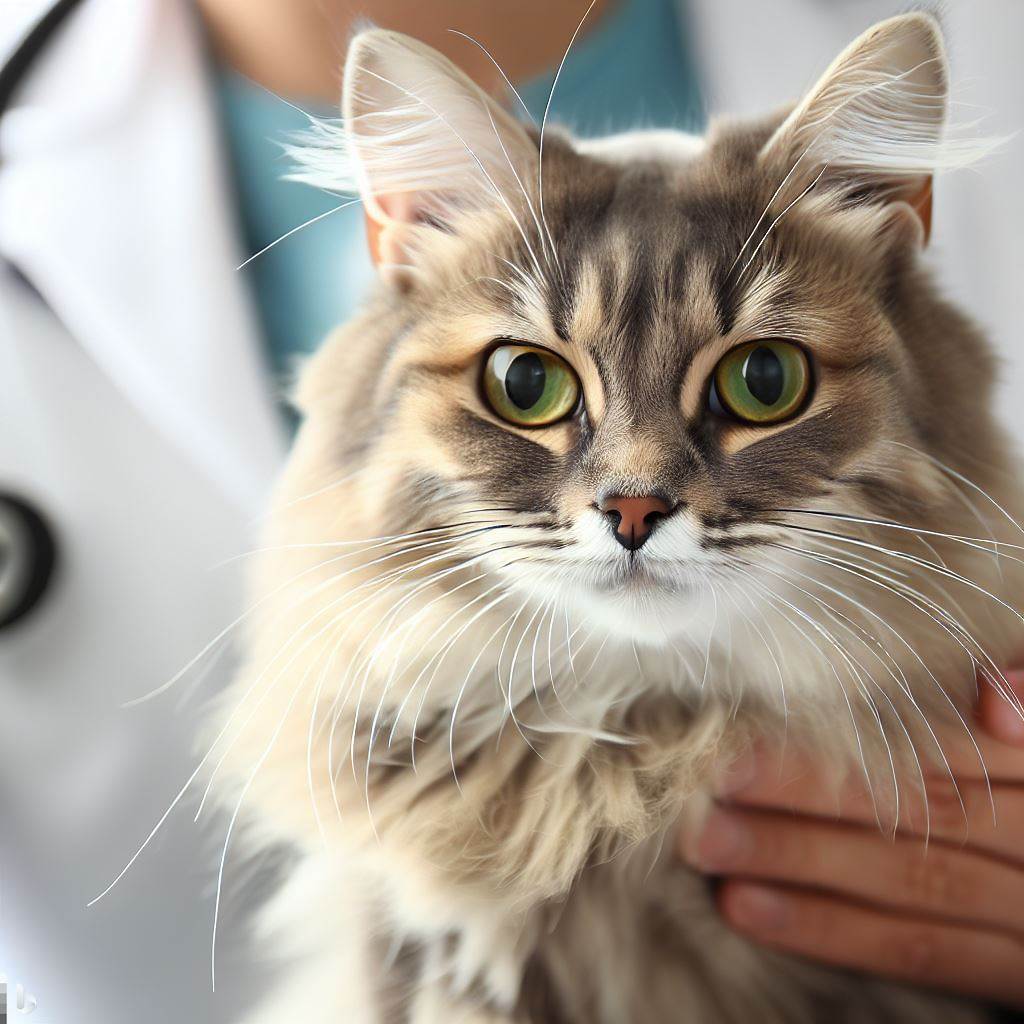Let’s be real - sometimes our adorable furballs can be a little...stinky. As much as we love them, that funky feline smell can get out of hand. But don't worry, you don't have to hold your nose forever! There are typically some simple reasons behind your cat's odorous offence, along with a few easy solutions. In this post, we'll cover the most common causes of cats smelling unfresh and some homemade remedies you can try at home first. Let's get right to it!

Causes of Foul Odours in Cats
Poor Dental Health: Bad breath is a big indicator of dental disease in cats. The buildup of tartar and bacteria causes tooth decay and gum infection, making their mouth stinky. Lack of teeth brushing also allows this. Make sure to brush those chompers!
Ear Infections: Bacterial or fungal infections deep in the ear canal often lead to foul-smelling discharge and debris. You may notice your cat scratching their ears excessively too. See the vet for medication to clear it up.
Excessive Sweating: Just like us, nervous or overheated cats can sweat more, causing a stronger body odour. Try to keep your kitty calm and ensure they don't overexert while playing. Grooming more frequently can also help remove sweat buildup on the skin.
Infected Anal Glands: Anal glands are small sacs located on either side of a cat’s anus. They produce a foul-smelling fluid that marks territory when released. Sometimes these glands can become clogged and infected, which causes swelling, making it painful for the cat to release the fluid. Bacteria then builds up inside the glands, causing abscesses. This leads to a very pungent, fishy discharge that leaks from the glands, resulting in a terrible odour.
Anal gland infections require veterinary care. The area needs to be thoroughly flushed and antibiotics prescribed to treat the infection. Leaving it untreated can cause recurrent abscesses. So foul anal gland odour is a sure sign a vet visit is required.
Urinary Tract Infections: A UTI can make your cat's urine smell particularly foul. There may be other symptoms like frequent urination or straining too. Vet-prescribed medication is needed to treat the infection.
Improper Grooming: When cats can't groom thoroughly due to age, weight or joint problems, debris and oil build up on their skin and coat, worsening odours. Regular brushing and light bathing help cats needing assistance grooming.
Skin Infections: Bacterial or fungal skin infections can cause significant odour in cats. Ringworm, mange, and other conditions lead to irritated, infected skin that gives off a foul smell. There may be visible symptoms like hair loss, scabs, and redness. Skin infections require diagnosis and treatment by a veterinarian. Antibiotics, antifungal medication, or medicated baths may be prescribed depending on the cause. Leaving the infection untreated allows the stench to worsen over time, so if your cat has a persisting bad skin odour, along with skin issues, a vet visit is a must.
Obesity: Excess weight makes it tough for cats to groom themselves properly. Fold infections can happen in obese cats too. A diet and exercise plan is needed to shed the necessary weight.

Home Remedies and Solutions
Brush Those Pearly Whites: Regular teeth brushing keeps tartar and bacteria at bay. Use a pet-safe fingerbrush and toothpaste. It only takes a minute but makes a big difference for bad breath!
Clean Grimy Ears: Use a gentle ear wash solution to remove gunk and debris from the ears. Wipe outer areas only with a cotton ball. Don't insert anything down the canal. This keeps ears smelling fresher.
Bath Time: An occasional bath with a mild pet shampoo can help freshen up a smelly coat and skin. Follow directions carefully and avoid getting water in their ears and eyes. The struggle is real but so worth it!
Diet and Exercise: If a chonky kitty needs to drop a few pounds, a scheduled feeding plan with measured portions and more playtime will help. Obesity leads to odour, so slimming down is important.
Hydration is Key: Make sure water bowls are always full and freshened frequently. Dehydration concentrates the urine and makes odours worse. Ice cubes can encourage drinking too!
Brush, Brush, Brush: Daily brushing removes dirt, distribution oils, and loose fur that cause odour buildup in their coat. Your kitty will love the massage too!
Scoop the Litter: Scoop waste from litterboxes twice daily or more if needed. Change litter weekly. Dirty trays make any home stinky. Keep your cat's toilet clean!

When to See the Vet
Stinky Breath That Won't Quit: Bad breath or excessive drooling that won't resolve with regular tooth brushing may indicate dental disease or other medical issues needing veterinary attention.
Ear Discharge or Redness: Any foul-smelling discharge, debris, redness or swelling in the ears signals an infection that requires medication. Don't try fixing it yourself!
Skin Infection Signs: Rashes, bald patches, intense itching and other symptoms mean skin infections are brewing. Get those bugs diagnosed and treated promptly.
Changes Down There: Marked changes in pee frequency, volume, odour or difficulty urinating can be a sign of UTI. Best get the vet's insight.
Energy Level Drops or Appetite Changes: If the kitty seems lethargic, disinterested in food or has other behaviour shifts, illness could be the culprit. Odours may reflect an underlying problem.
When Home Remedies Fail: If you've diligently tried solutions for odours to no avail, your cat likely needs medical intervention to diagnose and treat the cause. Never hesitate to call the vet!
While it's no fun dealing with foul feline smells, addressing the problem quickly can restore your happy home. Cats rely on us to notice changes and meet their health needs. With attentive care, proactive grooming, and veterinary guidance when required, most causes of odour can be resolved. Stay observant of any behaviour shifts that could indicate illness. You and your cat can cuddle and breathe easy again soon!











